
MusicRadar new album round-up
Welcome to volume three of our monthly album round-ups - slightly later than usual (we had to nip to Frankfurt!) As ever we’re taking a look at a few of the albums scheduled for release this month that have caught our attention.
This month we’ve got the new record from stadium-filling rockers the Foo Fighters, a new album from one of the UK’s best producers and Burial’s mentor Kode9, and the return of 2001’s indie kings The Strokes among other things. Click through to check out our verdict on them all.
As always, use the comments section below, Facebook and Twitter to let us know what you've been listening to, what releases you're excited about and what you think of our verdict on things.
First up: Foo Fighters - Wasting Light
Connect with MusicRadar: via Twitter, Facebook and YouTube
Get MusicRadar straight to your inbox: Sign up for the free weekly newsletter
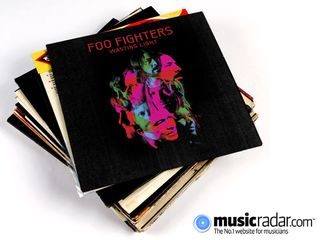
Foo Fighters - Wasting Light
Dave Grohl and his post-Nirvana stadium mainstays Foo Fighters return, with an album recorded in Grohl's garage.
Our verdict:
As a teenage rock fan in the mid ‘90s, there was a time when it felt like Dave Grohl could do no wrong. Certainly, to step out from behind the drum kit following the demise of the most important band of the decade and release a pair of records as convincing as the first two Foo Fighters LPs is a still-unequalled feat.
While the Foo Fighters’ eponymous debut was a fuzzy pop masterpiece, The Colour And The Shape defined the sound of mainstream rock for the generation that followed it. But that was way back in 1997. Arguably, The Nicest Guy In Rock’s most substantial work in the years since has been committed to tape while pounding the drums under the dark auspices of Mr Joshua Homme.
Over the past decade, the Foos have filled arenas and stadiums off the back of a killer live show and radio friendly, unit-shifting singles, but all the while, the story of their studio output has been one of diminishing returns and too much MOR filler. Then at the tail end of last year, reports began to surface that suggested things could be different this time around. With Pat Smear back in the fold, Butch Vig manning the desk in Grohl’s garage, and even a cameo by Nirvana’s bass giant Krist Novoselic, this had to be a great rock record, right?
Straight off the bat, Wasting Light is harder than anything the band have made for years, but crucially it’s not so heavy as to alienate the fans who reach over and turn up the radio when the DJ spins Times Like These. Indeed, Vig’s all-analogue production job is more than bright and shiny enough to keep the band’s footing steady on mainstream radio playlists, suggesting that Dave Grohl’s garage studio is considerably better equipped than most.
The likes of White Limo and Rope are unqualified successes - diamond-sharp hard rock comets and the sound of a group of musicians having more fun than they’ve had in years. But perhaps that’s the problem; it’s probably unreasonable of us to expect a group of well-adjusted 40-something millionaires to channel the hunger, angst and dysfunction that have so often been necessary in order to elevate rock music into the realms of great art.
While Wasting Light could never be an In Utero or a Songs For The Deaf, it’s still a fun, well-crafted - if at times a little throwaway - modern rock album that sees a group of wily old pros give the kids down at the front a big stack of riffs to pogo along to. Those of us now hitting our thirties wanting to hear another Everlong or No One Knows might be better off getting our kicks elsewhere. Chris Vinnicombe
Listen: Foo Fighters - White Limo
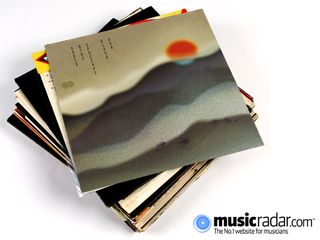
Kode9 & The Spaceape - Black Sun
Hyperdub label-boss and leftfield electronic music hero Kode9 releases his second full-length album, the long-awaited follow-up to 2006’s Memories Of The Future. Black Sun once again features long-time vocal collaborator The Spaceape.
Our verdict:
There’s a very good reason that Kode9, aka Glaswegian-native Steve Goodman, is held in such high regard by electronic music fans. Since emerging on the fledgling dubstep scene both he and his ever-reliable Hyperdub label have managed to remain constantly at the forefront of cutting edge dance music. In that time he’s released countless influential singles, nurtured the genre’s best-known talent in Burial and release a critically acclaimed album - Memories Of The Future.
With this second full-length Kode9 expands his production style to incorporate elements of the wide range of genres he’s shown an interest in through his increasingly eclectic DJ sets and Hyperdub signings. The album still takes dubstep as its template, but there are elements of UK funky, house and experimental tendencies throughout.
As with their previous collaborations, The Spaceape adds, brooding, semi-poetic and dub-tinged vocals across the course of the album. Supposedly the lyrics bring the whole thing together under a post-apocalyptic narrative, although any story there seems vaguely incomprehensible.
Either way, tracks like the warm, synth-driven Otherman, the potentially dancefloor-killing Am I and the excellent Flying Lotus collaboration Kyron are easily up there with the best things Kode9 has ever produced. There’s a reason Kode9 is held in high regard and this - one of the best electronic albums so far this year - is a perfect example of why that is.
Listen: Kode9 & The Spaceape - Otherman
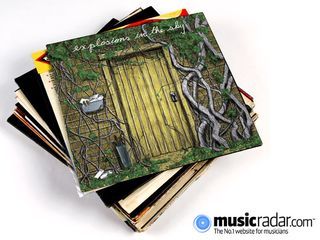
Explosions In The Sky - Take Care, Take Care, Take Care
Thanks to their melodic guitar lines and intense live shows, Texan instrumental-rockers Explosions In The Sky have carved themselves out a niche as the de-facto kings of 21st Century ‘post-rock’. Take Care… is their sixth album.
Our verdict:
By this point in their career picking up a new Explosions In The Sky album is a lot like picking up an expanded ‘deluxe’ DVD version of some old film you used to love. It feels a little more like bonus material than it does a totally new offering. In many ways, they’re just recovering old ground - much of Take Care… sounds, in terms of melodies and song structures, remarkably similar to their 2003 classic The Earth Is Not A Cold Dead Place. Little has changed in the sounds they coax out of their three-guitar-and-drums set up; the songs still glisten with the same bright-clean, reverb washed riffs across a back-drop of rolling snares and rising crashes.
Yet while there’s nothing surprising about the band’s new material, it’s still lovely to listen to. Few bands can make instrumental guitar music with as much emotion and nostalgia as EITS can, and that’s the reason they’ve maintain a core following for so long.
As a band they’ve essentially been doing one long victory lap for several years now, but they’re still doing it very well, and with enough conviction to make it still one that’s worth paying attention to.
Listen: Explosions In The Sky - Last Known Surroundings

Bibio - Mind Bokeh
Mind Bokeh is the fifth album from eclectic, Warp Records-signed British producer Steven Wilkinson.
Our verdict:
It’s not uncommon for producers, particularly those signed to Warp Records, to be fairly eclectic, but Steven Wilkinson has made a career out of it. His first few albums saw him labelled with the ‘folktronica’ tag for his use of sliced-up guitar parts, real-world samples and droning synth sounds. Yet his move to Warp in 2009 saw him change tack to find a more accessible, vocally driven sound incorporating hip-hop beats and poppy synth lines.
Mind Bokeh - named after a Japanese photographic term - is the most eclectic thing he’s released yet. It is, essentially, all over the place. Hip-hop influenced tracks like Wake Up! sit next to the guitar-pop of K Is For Kelson, while Take Your Shirt Off is full blown glammed-up pop.
Not that this wild eclecticism is necessarily a bad thing, on the whole Mind Bokeh is a mostly successful record. But, as is often the case when a producer like Bibio tries to do everything at once, there are a number of missteps. The retro funk of Light Sleep just seems odd compared to the rest of the album, while the clumsy beat of Pretentious stumbles over itself.
Mind Bokeh’s best moments come in some of the more low-key tracks towards the end of the album, the likes of More Excuses and St Christopher. In all, there’s no doubt the production skill is there, let’s just hope the next album is more focused.
Listen: Bibio - More Excuses
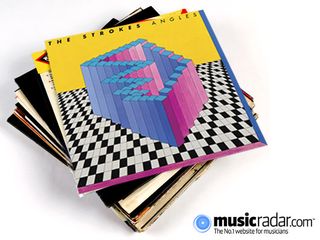
The Strokes - Angles
They reignited indie-rock with their first album back in 2001, but a lot has changed in the decade that's passed since then. Are The Strokes still worth listening to in 2011?
Our verdict:
No doubt by now you’ve heard at least some of The Strokes’ long overdue fourth album, Angles, and we’ll bet a large number of you have already dismissed it as a pompous mess of proggish ego, fuelled by solo success resentment and leather jacket-envy.
And while we’re on the Strokes-bashing bandwagon, we might as well get that ‘vocal’ issue out of the way. It’s common knowledge that chief ego, Julian Casablancas, recorded his vocals separately. And in places, Angles does indeed sound like it was created via email.
Oh, and note to bands: talking about how your next LP is going to be ‘the dogs’ while your current offering is less than a week old never worked for Noel Gallagher, and it won’t work for you.
But let’s back-up, here. Surely bruised egos and in-band friction have always been a cornerstone of electrifying music creation? This is rock‘n’roll, for f*ck’s sake, and if you give it a chance, Angles is a decent - if hard to categorise - collection of ideas.
Sure, first single Under Cover Of Darkness is a tad misleading as a mood-setter for what follows it, but it’s as good as anything The Strokes have done since Is This It. There are hints of a return to the almost reggae influence first heard on Room On Fire, and Casablancas has indulged heavily in his penchant for the electronic eighties.
Live, though, is where the songs really come alive. As a group they might look despondent, but as their respective solo projects have proved, they can all write, play, and look good doing it. Watch Taken For A Fool on Letterman and You’re So Right on Fallon for a fresh perspective.
So quit moaning, The Strokes. You might not be the coolest band on Earth anymore, but some of us have spent the last decade partying like it’s 2001, and you’re in danger of spoiling the party you started… Thomas Porter
Listen: The Strokes - Under Cover Of Darkness
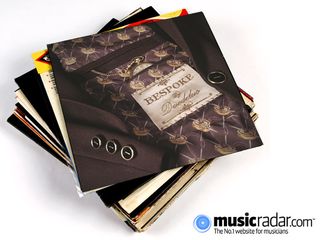
Daedelus - Bespoke
Deadelus is a Los Angeles-based producer and musician known for his use of the Monome - a MAX/MSP grid-based controller which he uses to build his sample-driven electronic music. He also likes to dress like a Victorian gentleman...
Our verdict:
Daedelus has released a lot of music in his career, so much that, to be honest we’ve lost track of how many albums and EPs in total. And that’s because he’s obviously a man with a lot of ideas.
At times in his career this mishmash of ideas has left his output of work feeling fairly disjointed and unfocused, fortunately though, on Bespoke he pulls it off with aplomb. The album seems to be equally influenced by sample-based old-school hip-hop and Daedelus’s love of whimsical Victorian-esque anglophile tendencies, which sounds bizarre (and it is), but it works.
Penny Loafers mixes looped beats with backing vocals that sound like they’ve been sampled from classical music and old fashion radio broadcasts. Sew, Darn, Mend on the other hand, mashes up instrument parts and ends up sounding like something from the soundtrack from an old Final Fantasy game - which isn’t a bad thing in any way. Slowercase D, meanwhile, is basically a cleverly slowed down version of Daedelus's own track Trouble With a Capital D from last year's Ninja Tune XX compilation.
Daedelus’s use of different guest vocalist on almost ever track does give the album a varied, and at times disjointed, feel. But on the whole he’s managed a superb job of combining some disparate and varied samples into a consistent and enjoyable whole.
Listen: Daedelus - Tailor Made (featuring Milosh)
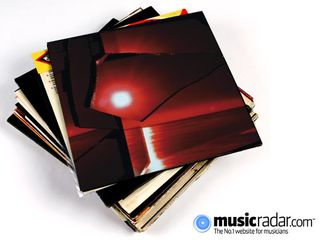
TV On The Radio - Nine Types Of Light
New York-based TV On The Radio might not quite be household names themselves, but they’re critical darlings, have been endorsed by David Bowie and their resident producer Dave Sitek has worked with the likes of The Yeah Yeah Yeahs, David Byrne and Scarlet Johansson. Nine Types Of Light is their fourth studio album.
Our verdict:
Nine Types Of Light is TV On The Radio’s most mature and refined sounding album to date. While their previous releases to date have mapped a slow progression from their earliest sample-based recordings into art-rock, post-punk and dance influenced territory, this fourth album sees them refine all these influences into a more sedate-sounding, eclectic mix of an album.
In some ways the energy and punch of their previous outing, 2008’s excellent Dear Science, has been lost this time around, but in its place is a newfound sense of warmth and timeless songwriting.
Once again producer Dave Sitek is the star of the show, emphasising the best parts of each song with well arranged horn and string sections while skilfully layering his and fellow guitarist Kyp Malone’s riffs. Yet the versatility of vocalist Tunde Adebimpe is still another of the band’s great trump cards. He’s long been shaping up as one of modern rock’s great vocalists, with the ability to switch from dark crooner to a James Brown-esque funk focal point at the drop of a hat.
This may sound a little like TV On The Radio losing the urgency of youth and moving towards middle age, but with songs like fantastic opener Second Song, lead single Will Do and the brass-driven New Cannonball Blues, it’s hard to find any reason to complain.
Listen: TV On The Radio - Second Song
I'm the Managing Editor of Music Technology at MusicRadar and former Editor-in-Chief of Future Music, Computer Music and Electronic Musician. I've been messing around with music tech in various forms for over two decades. I've also spent the last 10 years forgetting how to play guitar. Find me in the chillout room at raves complaining that it's past my bedtime.

"Reggae is more freeform than the blues. But more important, reggae is for everyone": Bob Marley and the Wailers' Catch a Fire, track-by-track

“Part of a beautiful American tradition”: A music theory expert explains the country roots of Beyoncé’s Texas Hold ‘Em, and why it also owes a debt to the blues

"Reggae is more freeform than the blues. But more important, reggae is for everyone": Bob Marley and the Wailers' Catch a Fire, track-by-track

“Part of a beautiful American tradition”: A music theory expert explains the country roots of Beyoncé’s Texas Hold ‘Em, and why it also owes a debt to the blues









